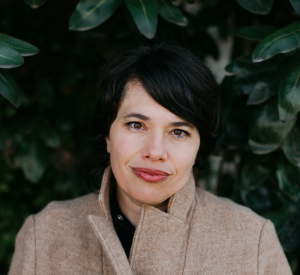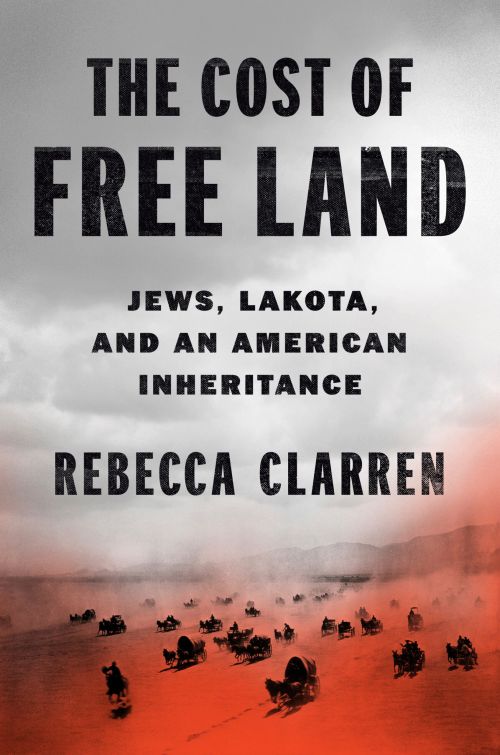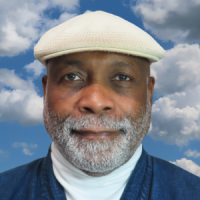One Book South Dakota
Since 2003, SDHC’s One Book South Dakota program has encouraged people across the state to read and discuss the same book throughout the year. Groups can request the current One Book South Dakota on loan and host an SDHC scholar for their discussion.
The Cost of Free Land Is 2025 One Book South Dakota
Growing up, Rebecca Clarren only knew the major plot points of her tenacious immigrant family’s origins. Her great-great-grandparents, the Sinykins, and their six children fled antisemitism in Russia and arrived in the United States at the turn of the 20th century, ultimately settling on a 160-acre homestead in South Dakota. Over the next few decades, despite tough years on a merciless prairie and multiple setbacks, the Sinykins became an American immigrant success story.
What none of Clarren’s ancestors ever mentioned was that their land, the foundation for much of their wealth, had been taken from the Lakota by the United States government. By the time the Sinykins moved to South Dakota, America had broken hundreds of treaties with hundreds of Indigenous nations across the continent, and the land that had once been reserved for the seven bands of the Lakota had been diminished, splintered, and handed for free, or practically free, to white settlers. In The Cost of Free Land, Clarren melds investigative reporting with personal family history to reveal the intertwined stories of her family and the Lakota, and the continuing cycle of loss of Indigenous land, culture, and resources.
Clarren is excited about sharing her work with more South Dakota readers. She hopes it encourages them to consider the consequences of our national legacy of dispossession and to imagine what, now, can be done.
“What an honor for The Cost of Free Land to be selected as the One Book South Dakota for this year,” Clarren said. “South Dakota Humanities’ efforts to think deeply about our American past and its legacy give me hope for the future. I hope South Dakota readers will deepen their connection to this remarkable state through learning more about our entangled history.”
One Book Author Tour Schedule
Sunday, May 4, Rapid City – 6:30 pm MT – South Dakota Public Broadcasting, Black Hills Studio, 415 Main St. For more information, contact Brittany Neiles, (605) 215-6143, brittany.neiles@sdpb.org
Monday, May 5, Lemmon – 1 pm MT – Lemmon Public Library, 303 1st Ave W. For more information, contact Raven Christman (605) 374-5611, lemmonlibrary@outlook.com
Monday, May 5, Eagle Butte – 5:30 pm MT light meal, 6 pm MT presentation – Cheyenne Eagle Butte School Auditorium, 2004 E St. For more information, contact Cherie Farlee, (605) 964-3303,
cheriefarlee072047@gmail.comTuesday, May 6, Miller -12 pm CT – Hand County Library, 402 N Broadway. For more information, contact Hannah Caffee, (605) 853-3693, library@handcountysd.org
Tuesday, May 6, Gregory – 6 pm CT – Gregory Public Library, 112 E 5th St. For more information, contact Tara Engel, (605) 350-4241, gregorylibrary@gmail.com
Wednesday, May 7, Yankton -12 pm CT – Yankton Community Library, 515 Walnut St. For more information, contact Kelly O’Dea, (605) 668-5275, kodea@cityofyankton.org
Wednesday, May 7, Sioux Falls – 6 pm CT – Center for Western Studies at Augustana University, 2121 S Summit Ave. For more information, contact Kamryn Miller, (605) 274.4005, kamryn.miller@augie.edu
Thursday, May 8, Watertown -12 pm Ct – Watertown Regional Library, 160 6th St NE. For more information, contact Laura Hinman, (605) 882-6220, lhinman@watertownsd.us

On Tour May 2025
One Book Scholars
For more information about previous One Book South Dakota titles, download the PDF or contact us at 605-688-6113.















